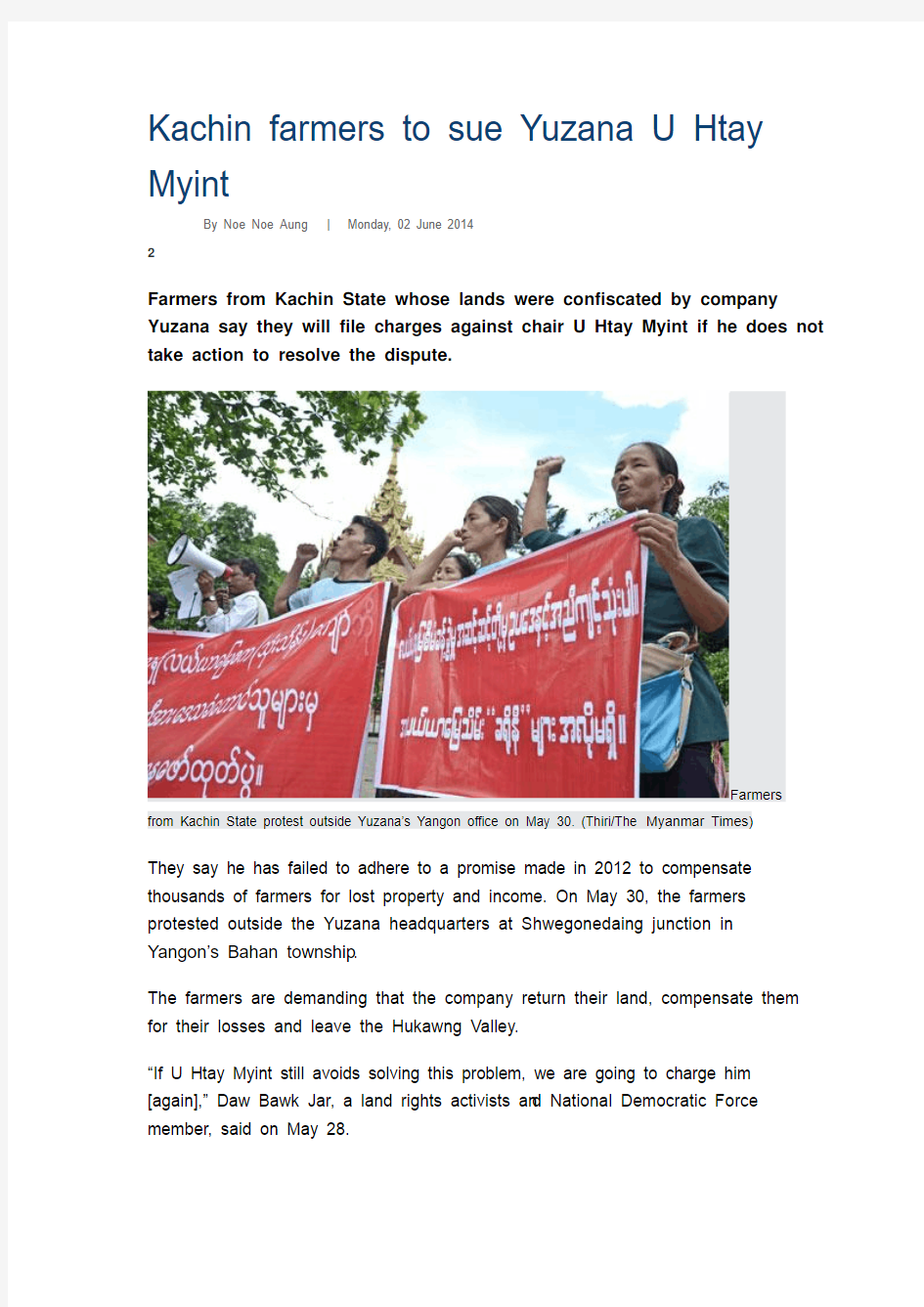

Kachin farmers to sue Yuzana U Htay Myint
By Noe Noe Aung | Monday, 02 June 2014
2
Farmers from Kachin State whose lands were confiscated by company Yuzana say they will file charges against chair U Htay Myint if he does not take action to resolve the dispute.
Farmers from Kachin State protest outside Yuzana’s Yangon office on May 30. (Thiri/The Myanmar Times)
They say he has failed to adhere to a promise made in 2012 to compensate thousands of farmers for lost property and income. On May 30, the farmers protested outside the Yuzana headquarters at Shwegonedaing junction in Yangon’s Bahan township.
The farmers are demanding that the company return their land, compensate them for their losses and leave the Hukawng Valley.
“If U Htay Myint still avoids solving this problem, we are going to charge him [again],” Daw Bawk Jar, a land rights activists an d National Democratic Force member, said on May 28.
In 2006, Yuzana received more than 300,000 acres of land in the Hukawng Valley area for a cassava plantation.
While most of the land was unoccupied, thousands of farmers from six villages lost about 30,000 acres of land.
After regional officials failed to act on their complaints, 17 farmers – including Daw Bawk Jar – brought charges against Yuzana and U Htay Myint, a Pyithu Hluttaw representative, in 2010.
While the farmers won the case, they were awarded compensation of just
K80,000 an acre. Appeals to higher courts were rejected.
After the farmers staged protests in Yangon in mid-2012, U Htay Myint promised Daw Bawk Jar at a meeting in Nay Pyi Taw that he would immediately return land to the 17 farmers who filed the case and compensate all other farmers for their losses.
“He did give us land but he just took it from other farmers,” Daw Bawk Jar said. “It’s not an acceptable solution.”
Representatives for Yuzana did not respond to requests for comment.
Farmers said the loss of their plantations had made them destitute.
“We regularly go without food because we have no income and no work,” said U Kum Htet Gwem Jar, 73. “Our houses were destroyed by bulldozers and burned down in front of our eyes.”